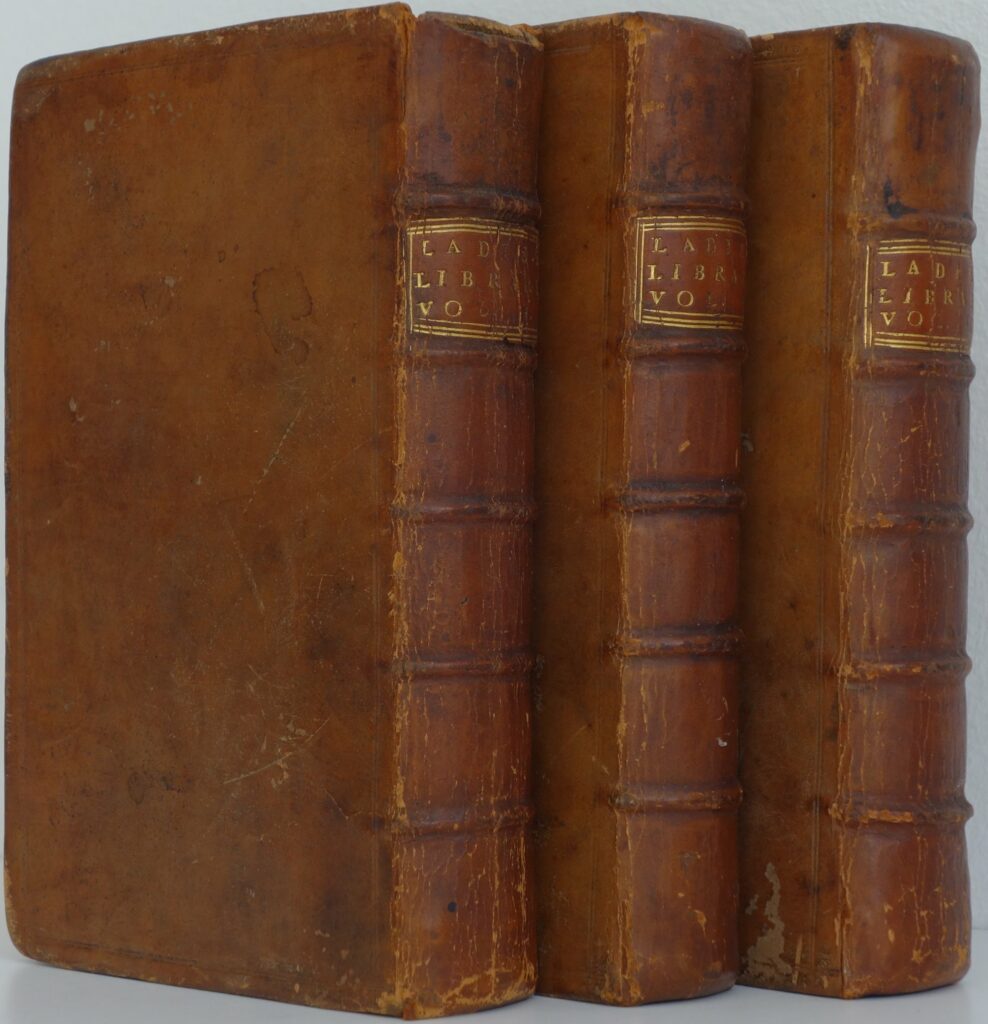
First edition of this compilation of works on women’s conduct and education collected and revised by the philosopher George Berkeley. The miscellany includes extracts from the writings of John Locke, Jeremy Taylor, and Archbishops Tillotson and Fénelon. The traditional attribution to Lady Mary Wray, Jeremy Taylor’s grand-daughter, was shown to be mistaken when Stephen Parks, Keeper of the Osborn collection at Yale, discovered a contract between Berkeley’s friend Richard Steele and the publisher Jacob Tonson which identifies Berkeley as the editor.
‘It may seem odd that a brilliant young writer should have spent perhaps a considerable time making such a compilation. However, Berkeley may have needed the money … [again] it might be thought strange that Berkeley should use the nom de plume ‘written by a Lady’. In fact he seldom used his own name on a title-page. …. Most of the Ladies Library is made up of long, unaltered quotations from ‘the best English authors’. In some cases quotations are revised and words added or subtracted. Occasionally, whole paragraphs are added, especially by way of introduction or transition. …. The Contract and Preface plainly point to Berkeley as being entirely responsible for the body of the work. And it may also be assumed that he wrote the Introduction in Volume 1′ (Berkeley Newsletter, No. 4, December 1980. pp. 8-9).
‘For a complete record of Berkeley’s contributions, one must examine the Ladies Library against the original texts of those authors such as Fenelon, Taylor, and Fleetwood, whom Berkeley at times thoroughly and extensively rewrites and expands, weaving his own arguments through and against theirs in a way that makes the extrication of “insertions” difficult … As noteworthy, often, as Berkeley’s insertions and elaborations are his many omissions, as when in Par. 6 of “Meekness” in Vol. 1 he quietly drops Allestree’s phrase (from the Ladies’ Calling) the “natural imbecility” of women.’ (Berkeley Newsletter, No. 11, 1989/90, p. 2).
